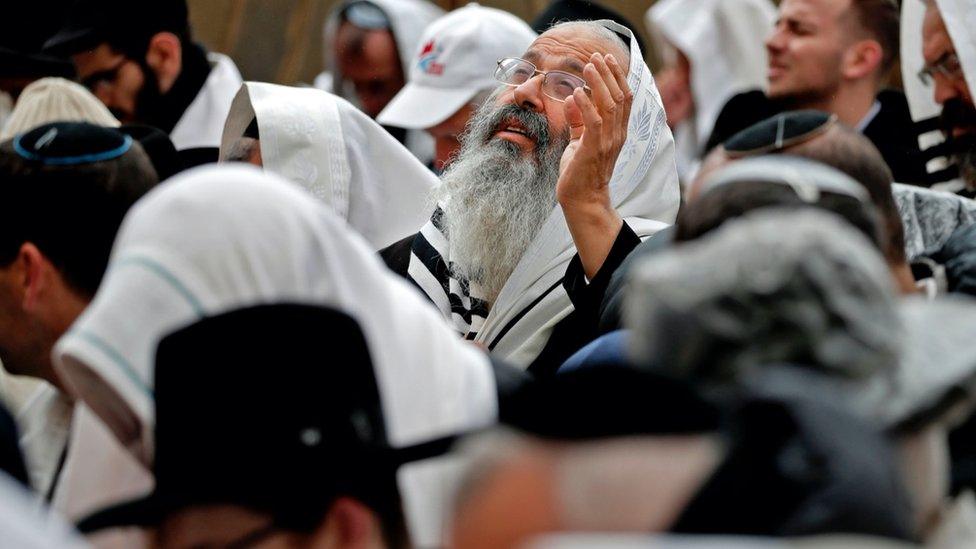Coronavirus and Ramadan: Holy month marked at home in pandemic
- Published
Dr Faraz Ali will be working 12-hour shifts during Ramadam
Marking the Muslim holy month will be "different" this year in the midst of a pandemic, community leaders have said.
Ramadan, which starts this week, is usually a time marked by fasting, communal worship and meals.
But as the lockdown continues, and mosques remain closed, community leaders across Wales are finding new ways of doing things.
From live streaming recitation of the Koran and virtual meals, the community is getting together while at home.
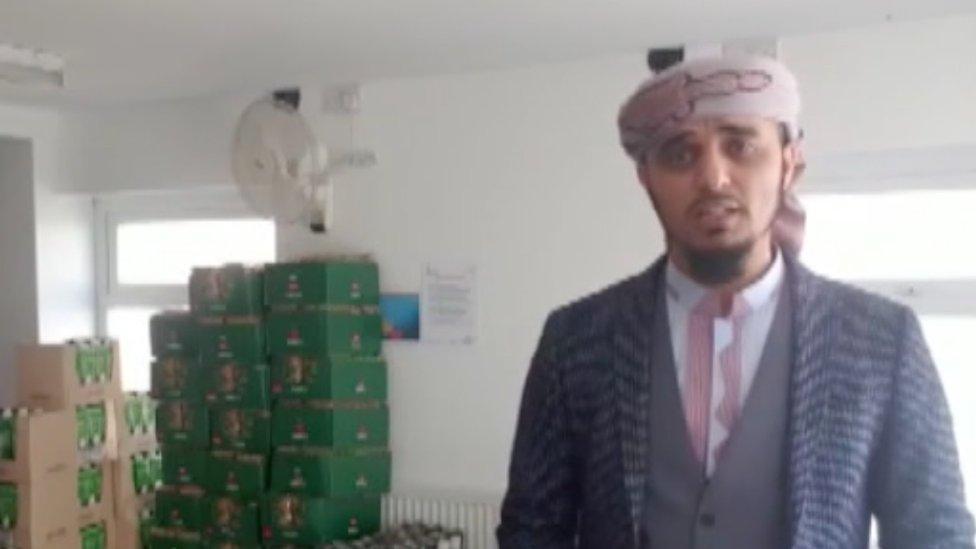
Iman Ahmed Ali is looking at new ways of bringing the community together during Ramadan
"There will not be the evening meals together and there will not be congregational prayers," said Ahmed Ali, Imam at the al-Ikhlar centre in Adamsdown, Cardiff.
"We are encouraging our congregation to stay at home and to enjoy Ramadan alongside their family members.
"Although we can't pray together virtually we are looking into live streaming recitation of the Koran and some are talking about having a virtual Iftar to make the most of the coming month."
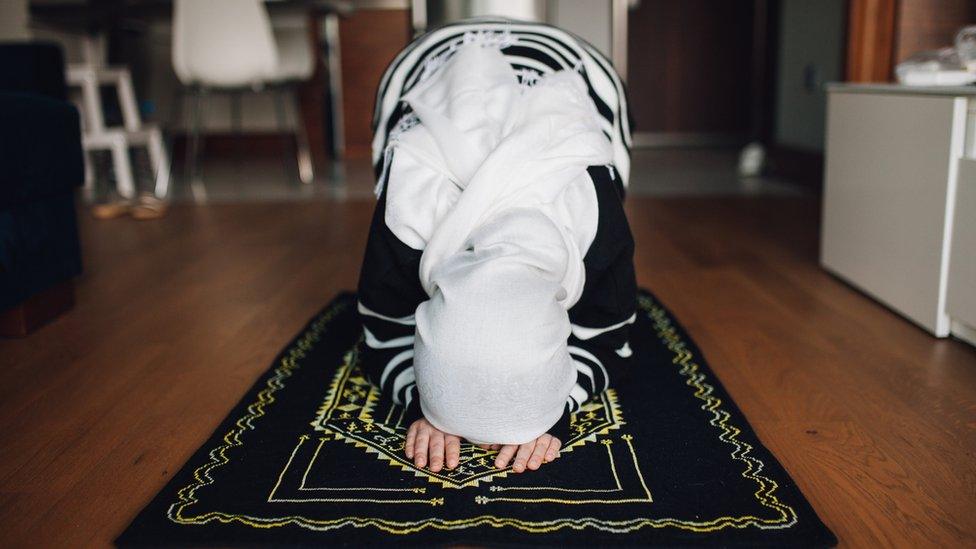
Ramadan is usually a time for communities coming together - but this year families are being encouraged to stay at home
In a letter to Muslims in Wales, First Minister Mark Drakeford said the holy month was falling "during an extraordinary time when the world is dealing with the coronavirus pandemic".
"The swift action of Muslim communities so far by adapting to different ways of worship, has undoubtedly saved lives. Thank you to you all for these actions," he said.
Fasting is one of the five pillars of Islam: the others are faith, prayer, charity and the pilgrimage to Hajj.
Many Muslims believe fasting also helps in bringing them closer to the poor and those who feel hunger on a regular basis.
But for NHS front-line staff, fasting from dawn until dusk can be especially difficult at this time.
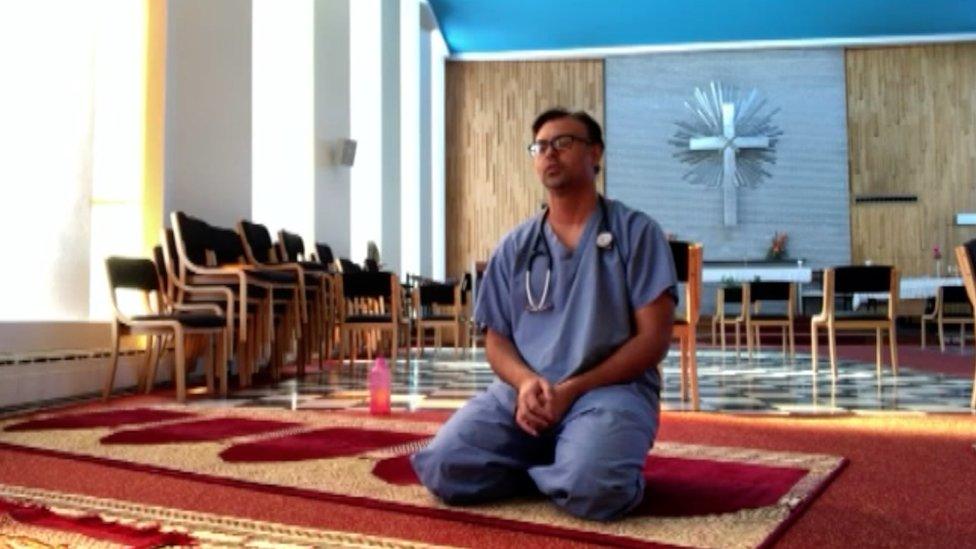
Dr Faraz Ali said he had shaved his beard in order to wear a mask while he was treating patients
Dr Faraz Ali, a dermatologist who is now treating coronavirus patients in Cardiff, said while Ramadan was usually challenging, working 12 to 13-hour shifts wearing personal protective equipment was making it even more testing.
"People underestimate how challenging it can be on your body," he said
Dr Ali, who is working at the University Hospital of Wales, said he had shaved his beard in order to wear a mask while he was treating patients.
"It was a very emotional and very challenging moment for me," he said.
"Islam says humanity has to be protected, if it means protecting myself, those around me, and my patients, then shaving my beard is a small sacrifice to make until the Covid pandemic is over," he said.
The Muslim Council of Britain has published online guidance to help people cope with the restrictions of lockdown during the coming month.
This includes guidance on how to arrange virtual Iftars [usually a huge ritual meal marking the breaking of the fast after sundown] via video chats, and tips such as planning menus in advance to avoid multiple shopping trips.
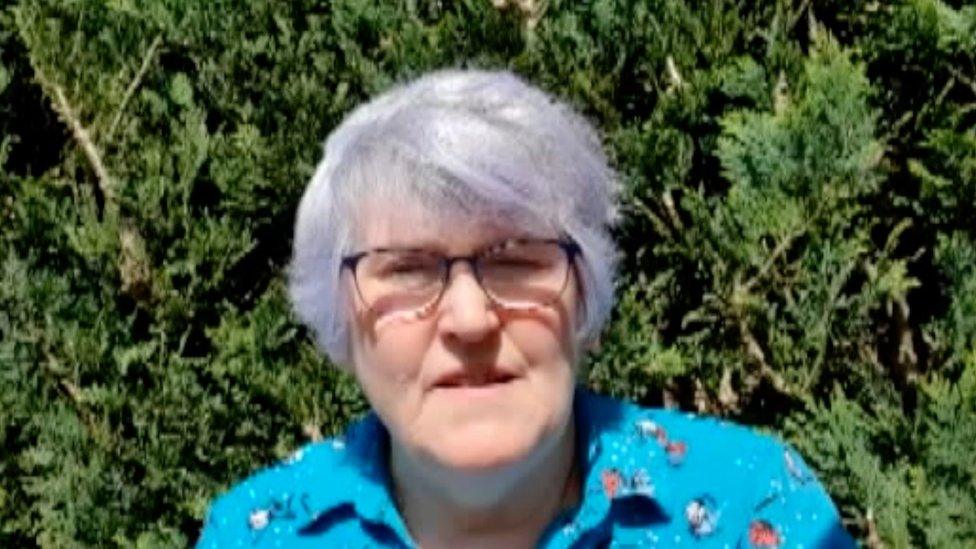
Sian Messamah said she hoped people would give more due to saving more while staying at home
Sian Messamah, from Rhos-on-Sea, in Conwy county, said the lockdown could help people give more to charity and help the poor - which is a very important part of the holy month.
"This year, because people will have been spending a lot less in general, then hopefully we'll be able to give more to charity than normal," she said.
- Published21 April 2020
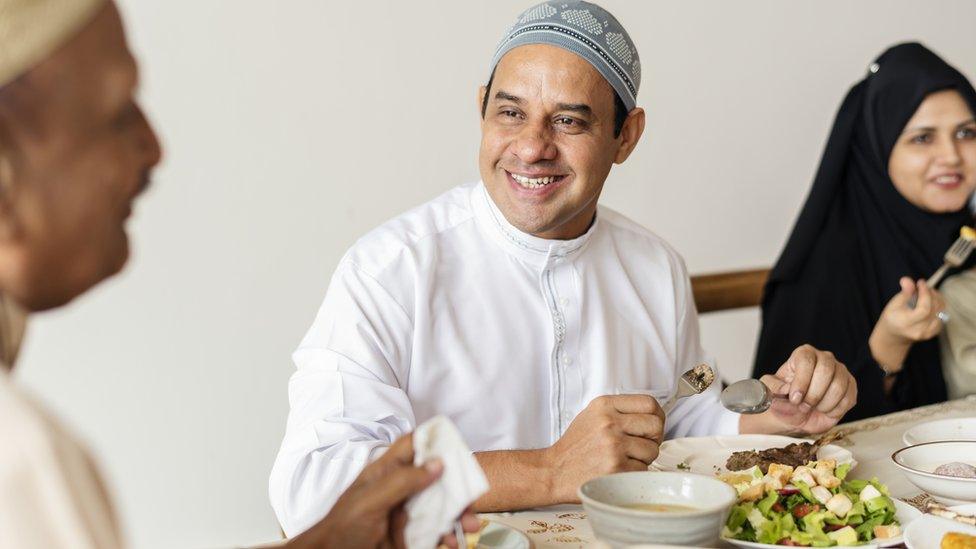
- Published8 April 2020
